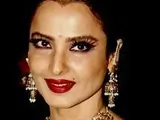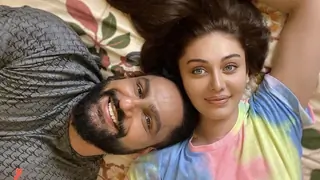- 22 Jul 2013
- Hindustan Times (Mumbai)
- Kavita Awaasthi kavita.awaasthi@hindustantimes.com
'I HAD NO IDEA THAT IT
WOULD BECOME SO BIG'
Says veteran actor Surekha Sikri about her iconic character Dadisa on a popular show
Keeping a character alive for five years isn't an easy task. And 68year-old Surekha Sikri, who plays the iconic character of Dadisa in Balika Vadhu, feels that the popularity she has received is a result of the combined effect of other roles she has played in her past. Having won the National Film Award for Best Supporting Actress — twice (for Tamas (1988) and Mammo (1995), she still wants to better herself as an actor. In this chat, the soft spoken and spiritual actor talks about her stint at playing TV's most memorable grandmom.
Do you agree that the success and popularity of the role of Dadisa has surpassed your earlier memorable roles?
I was surprised myself that this character clicked with people. The process of acting is a continuous learning experience. An actor never arrives; so one can't say that. What I could do five years earlier, I can do better now. My growth as an actor reflects in my work. I have tried to give the character many shades; she is not a cardboard character. Dadisa is not boring.
Your character has seen a massive change — from that of a strict matriarch to a broad-minded grandmother. Is such a transformation actually possible for a real person?
It's possible in real life, but it might take longer. Changes can happen. Many old people are rigid but there's always scope; it depends on one's attitude. Dadisa changed over the years due to Anandi's influence and her own experiences in life. She is still superstitious, but not to a large extent.
What kinds of reactions do you get for you acting?
Earlier, kids would run away from me but now they rush to meet me. People tell me I remind them of their grandmom (laughs). I feel touched and delighted by that.
When you took on the show, did you know that Dadisa would become a central character?
I had no idea that it would become so big. It was supposed to be a negative character but not a stereotypical one. It went on to become popular as it was a contrast to the little Anandi; people liked that.











































